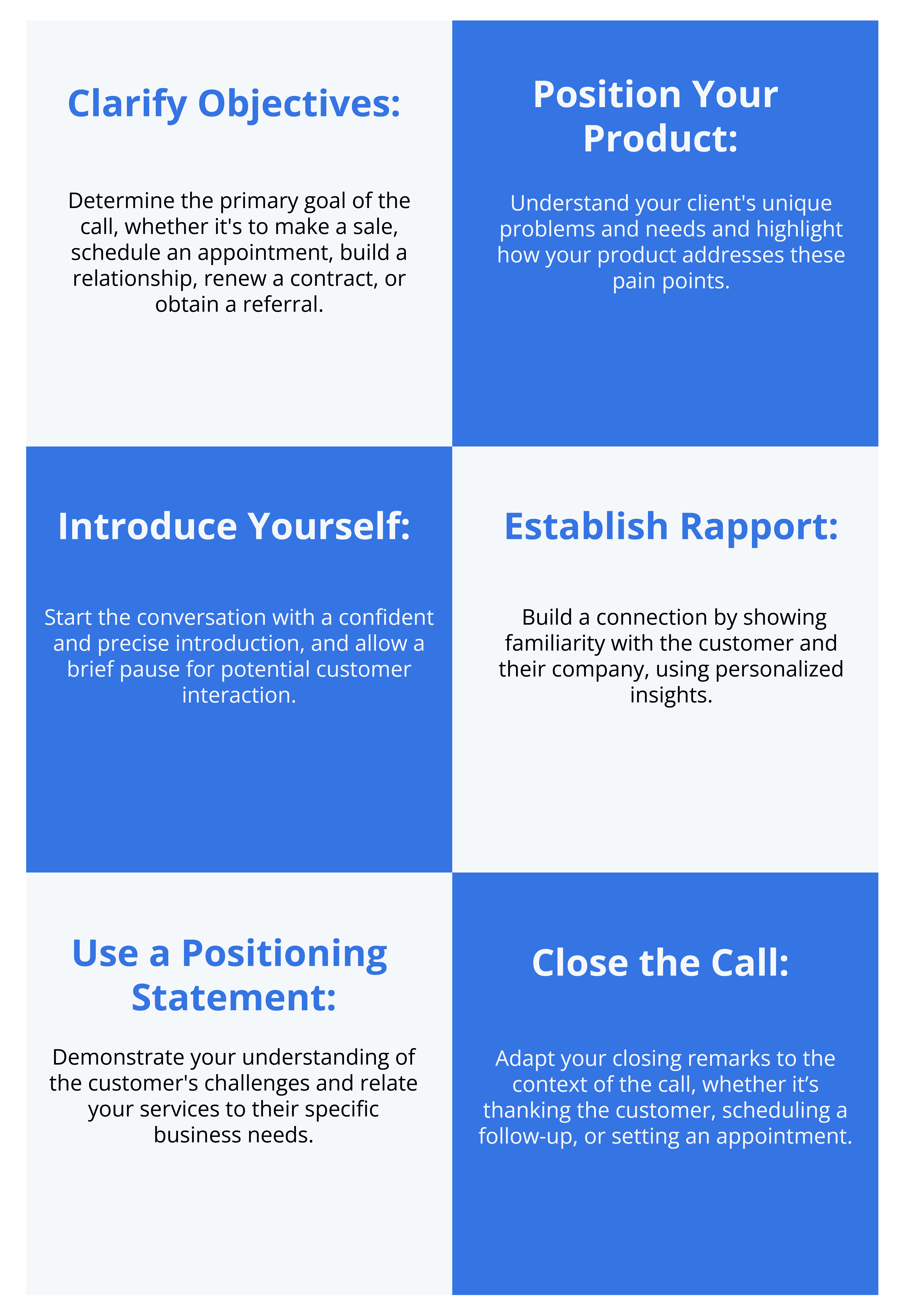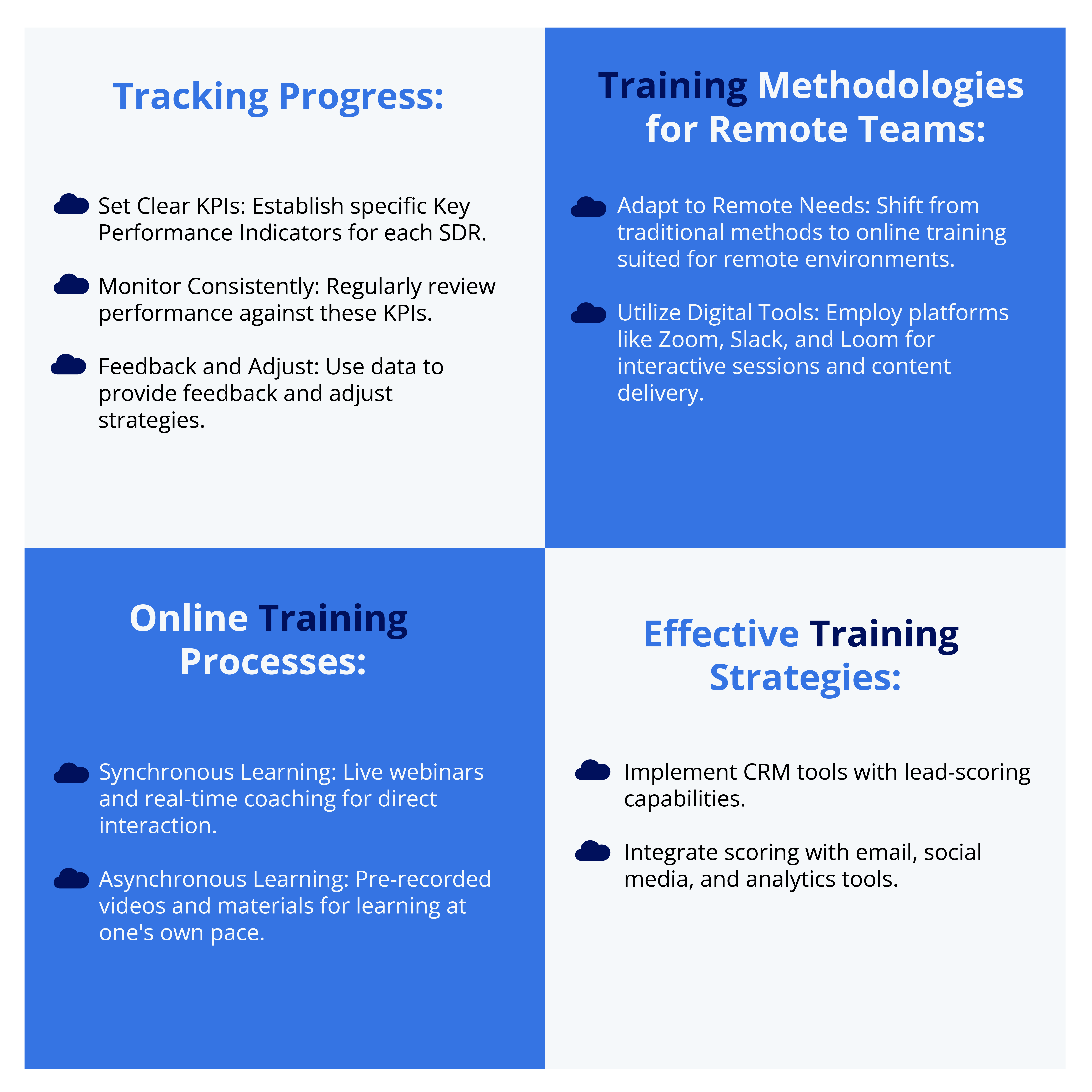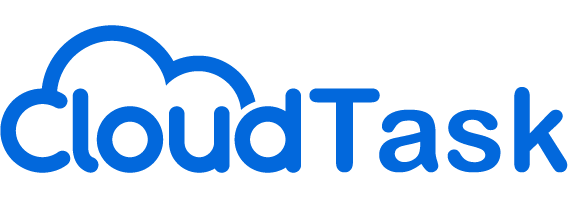Effective management of a remote sales team in the B2B sales industry requires a systematic approach that emphasizes consistency in sales scripts, efficient team management, and the appropriate use of technology.
In contrast to in-person management, virtual leadership necessitates adopting tools and methods to ensure outstanding performance and consistency in the sales scripts used by the team for cold calling or cold emailing. Remote work’s geographical barriers can make this challenging without the tools to overcome them.
We have compiled a list of 7 crucial steps that B2B sales managers can follow to establish a remote sales team that maintains consistency in their sales scripts.
Step 1. Build Trust in Your Remote Sales Team
Trust is the bedrock of any successful remote sales team.
Creating a supportive and respectful environment for Sales Development Representatives (SDRs) is crucial. This includes trusting their abilities to effectively use sales scripts for pitching to potential customers and establishing structures that promote this trust.
When working remotely, trust becomes essential as no one is sitting next to you at your desk, and physical distance can often lead to feelings of isolation.
To overcome this challenge, building trust and unity among team members is crucial. This helps bridge the gap and creates a sense of shared purpose and unity among team members.
Regular virtual meetings to agree on sales scripts and strategies, recognize achievements, and have an open-door feedback policy effectively build team trust.
Step 2: Implement Effective Remote Team Communication
Remote sales team communication goes beyond scheduled meetings and requires explicit norms, diverse tools, and a culture of openness.
Here’s a breakdown of key strategies:
- Setting Clear Norms: Establishing guidelines for communication is critical. This includes:
- Updating status when away from the desk to maintain transparency.
- Conduct regular reviews of sales scripts to align team members. Listen to call recordings to ensure a uniform sales approach.
- Updating status when away from the desk to maintain transparency.
- Utilizing Diverse Communication Tools: Leveraging various platforms caters to different communication needs. These include:
- Slack: For ongoing, real-time conversations and team updates.
- WhatsApp Channels: Complementing Slack, WhatsApp provides a more informal setting, ideal for quick updates or casual interactions.
- Email: For clear, concise communication that documents essential information.
- Video Conferencing Tools: Platforms like Zoom, Google Meet, or Microsoft Teams are essential for face-to-face interaction, fostering a sense of connection despite physical distance.
- Slack: For ongoing, real-time conversations and team updates.
- Encouraging Open Feedback: Creating a work environment where team members feel safe and comfortable enough to share their questions and feedback is crucial for the success of any sales team. This can be achieved through:
- Regular feedback sessions, where team members can voice concerns and ideas.
- Creating a safe space for open dialogue, ensuring all voices are heard.
- Regular feedback sessions, where team members can voice concerns and ideas.
- Availability for Impromptu Calls: Sometimes, urgent matters require prompt decisions. Being easily reachable can help address immediate issues or concerns, promoting a responsive and adaptable team environment.
Step 3: Define Sales Scripts with Your Remote Team
Before launching any sales campaign, crafting a well-defined sales script, especially for managing remote sales teams, is essential. This streamlines the sales process and is fundamental in achieving campaign success.
Tailoring sales processes to cater to each customer’s individual needs is a key aspect of a customer-centric approach. It significantly improves engagement and boosts conversion rates.
To develop a consistent and effective sales script for remote teams, follow these crucial steps:

Step 4: Establish a Robust Lead Scoring System
Implementing efficient lead scoring systems is essential in remote sales team management.
This process involves assigning values to each lead based on various attributes and engagement levels.
Here’s how to set up and optimize lead scoring systems:
- Understanding Lead Scoring:
- Assign points to leads based on their information and interactions.
- Prioritizes leads for higher conversion rates.
- Assign points to leads based on their information and interactions.
- Lead Scoring Criteria:
- Demographic Information: Score based on fit with target audience.
- Company Information: Points for matching desired organization profiles.
- Online Behavior: Higher scores for meaningful website engagement.
- Email Engagement: Rate based on email interactions and clickthroughs.
- Social Engagement: Points for social media interactions and influence.
- Spam Detection: Deduct points for potential spam indicators.
- Demographic Information: Score based on fit with target audience.
- Tips for Effective Lead Management:
- Customize Scoring: Tailor to specific business needs.
- Update Regularly: Adapt criteria to market and customer changes.
- Data-Driven Decisions: Use analytics to refine the model.
- Customize Scoring: Tailor to specific business needs.
- Utilizing Technology:
- Implement CRM tools with lead-scoring capabilities.
- Integrate scoring with email, social media, and analytics tools.
- Implement CRM tools with lead-scoring capabilities.
Step 5: Monitor Performance and Craft Training Programs
It is crucial to keep track of progress and establish comprehensive training programs to effectively manage remote sales teams. This is especially important to ensure that the remote team is aligned and consistent in their use of sales scripts.
Proper measures must be taken to guarantee that SDRs adhere to the pre-defined sales scripts while also identifying areas of opportunity to enhance team performance.
Here’s a streamlined approach:

Step 6: Perform In-Depth Pipeline Evaluation
Regularly reviewing the sales pipeline is crucial for managing remote sales teams. It enables sales managers to gain insights into sales scripts’ effectiveness and identify improvement areas.
Managers can use tools such as Salesforce’s lead generation software to identify specific stages where leads may drop off and make strategic adjustments.
Pipeline analysis is a valuable tool that helps sales managers develop customized training programs that address each Sales Development Representative’s (SDR) unique challenges and strengths.
By continually monitoring progress, providing constructive feedback, and implementing strategies for improvement, sales managers can cultivate a high-performing remote sales team.
Step 7: Integrate CRM Systems Across Platforms
For small businesses aiming to optimize their operations, improve customer service, and increase sales, it is crucial to ensure that their CRM software is consistent across different platforms.
Key to this process is identifying core Key Performance Indicators (KPIs) that guide strategic decisions.
Selecting the right CRM, like HubSpot or Monday.com, ensures seamless integration with existing business tools. These platforms facilitate smooth data flow between systems, crucial for maintaining operational efficiency and data integrity.
In the digital age, security is critical. Salesforce CRM, for example, offers robust security measures to protect customer information.
Small businesses can create a secure and efficient environment by integrating the right CRM software, investing in training, supporting sustained growth, and adapting to market demands.
Conclusion
Managing a remote sales team presents unique challenges, especially when ensuring consistency in processes like sales scripts, a critical element for every Sales Development Representative (SDR).
It can be challenging to follow specific sales processes when there is a distance between team members. Therefore, it is crucial to establish effective strategies for communication and alignment.
Sales leaders can simplify the sales process and ensure efficient operations by adopting the methods outlined in this blog. These strategies help maintain sales script consistency across the sales team and promote unity and teamwork despite the physical distance.
Frequently Asked Questions (FAQs)
How do you build trust in a remote sales team?
- Building trust involves regular communication, transparency, and ensuring each team member feels valued.
What are some effective communication strategies for remote teams?
- Use tools like Zoom and Slack, set explicit communication norms, and encourage open, transparent dialogues.
How can sales scripts be tailored to different customers?
- Understand each customer’s preferences and adapt your communication methods accordingly.
How can CRM software be effectively aligned across platforms?
- Choose a CRM that integrates well with your existing tools and has robust security features.








